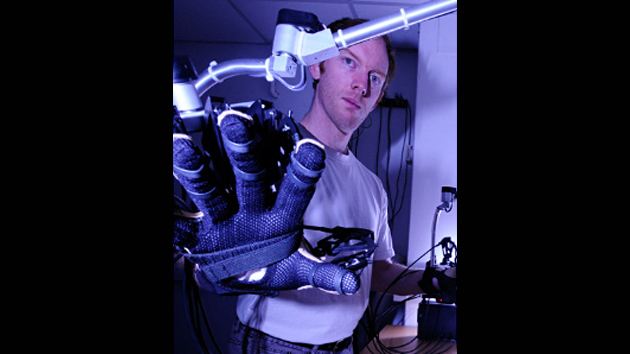The Brief
The NanoPhysics group at the University of Bristol led by Professor Mervyn Miles approached Inition to supply them with a wireless CyberGlove II with CyberGrasp and CyberForce Arm system. Initition were asked to advise on and install this advanced setup to allow the University to engage in groundbreaking research in the emerging field of nanomanipulation. They required the haptics system to enable researchers to detect and control particles of interest using force feedback.
Solution
Inition provided consultancy and supplied The University of Bristol with the Cyberglove systems. This enabled the NanoPhysics group to develop a haptics system which magnified the forces exerted by microscopic objects and fed them back to the operator via the CyberGlove. Using their dynamic holographic assembler (DHA) scientists were able to squeeze a biological cell and, by mapping the resulting force changes to larger numbers, enable the glove-wearer to feel the cell deform as they applied pressure to it.
Results
Inition is delighted to have been involved with such groundbreaking research. The manipulation of molecules and atoms is the extension of predictions by visionaries Eric Drexler and Ralph Merkle, who asserted that atoms could be manipulated to produce materials with diamond like strength.
Learn more about how this technology is being used by Bristol University here.





